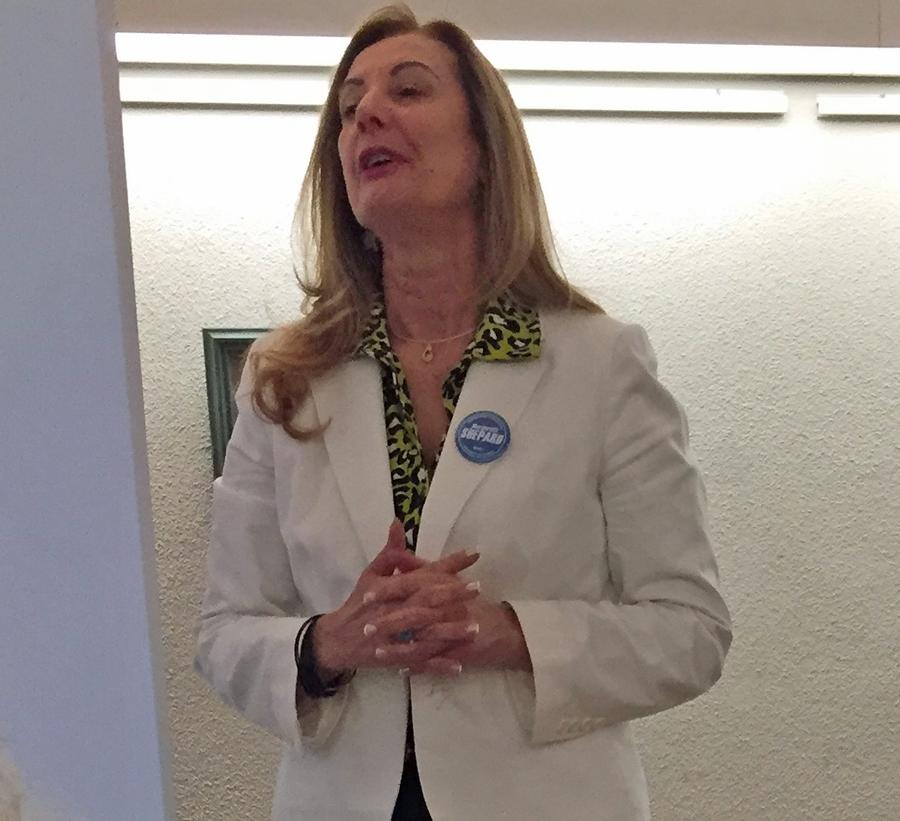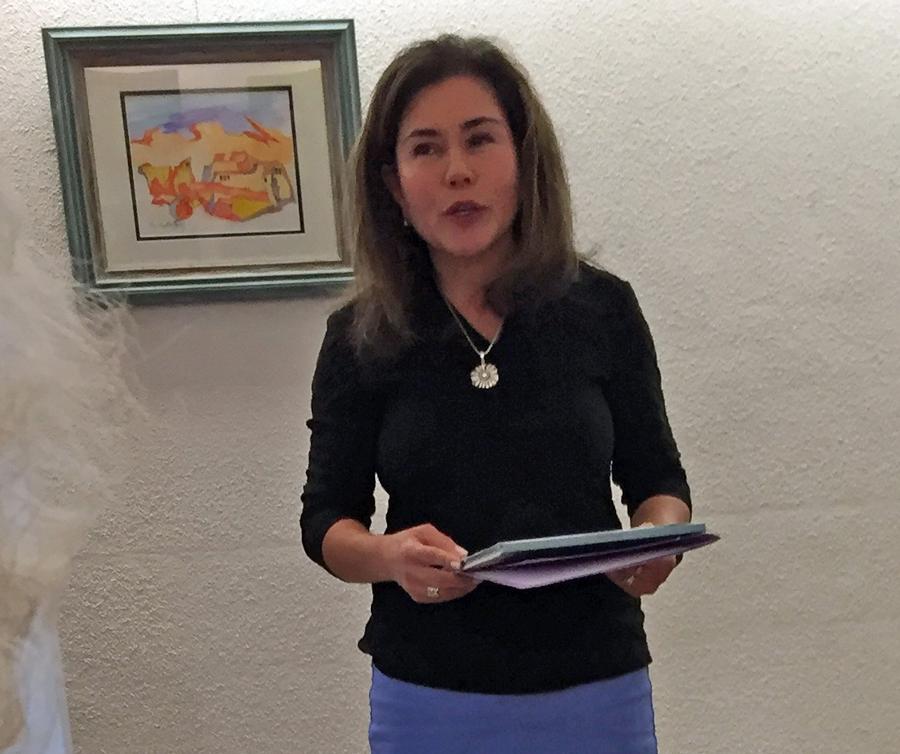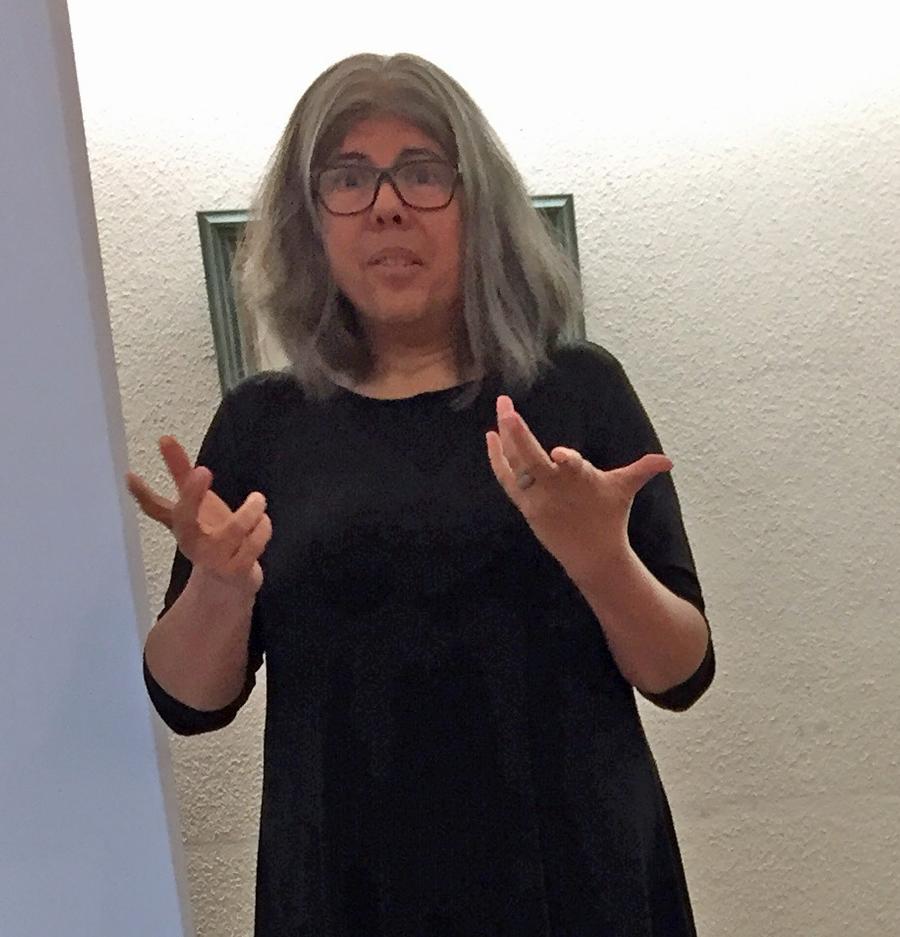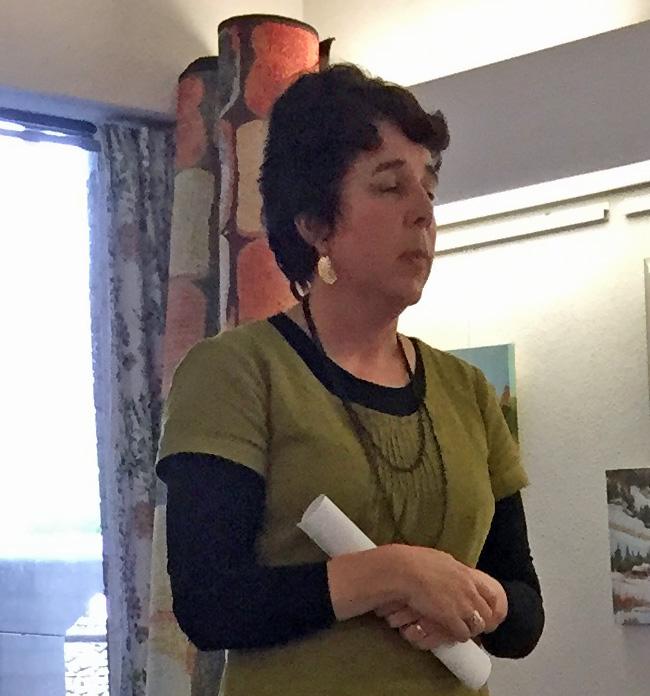Pathways to Citizenship – November 4, 2017 at the Holliston Library
Pathways to Citizenship – November 4, 2017 at the Holliston Library
Pathways to citizenship – it sounds deceptively simple. But it’s not. Not at all. After listening to three women share their stories and an immigration lawyer explain the pathways, this writer wondered how anyone can ever become a naturalized citizen.
Mary Kinsella introduced the speakers, mentioning that her own mother and other family members were immigrants.
 Margaret Shepard, from Brazil and living in Framingham for the past 25 years, spoke first. She is the co-founder of Brazilians for Education as well as an impressively long list of other groups and organizations in which she is involved. She arrived here in 1992, having family in the area. She quoted her mother as saying the following, which demonstrates the positive attitude and persistence of many immigrants. “We can survive anywhere. We can clean.”
Margaret Shepard, from Brazil and living in Framingham for the past 25 years, spoke first. She is the co-founder of Brazilians for Education as well as an impressively long list of other groups and organizations in which she is involved. She arrived here in 1992, having family in the area. She quoted her mother as saying the following, which demonstrates the positive attitude and persistence of many immigrants. “We can survive anywhere. We can clean.”
Many of the details Margaret shared reveal how hard it is to to attain legal status. She had to marry to qualify. It took her brother 15 years just to get a green card. If one does not have legal status, one cannot get a driver’s license nor can one get health care easily. She said that out of the 300,000 Brazilians 200,000 have to drive without a license because they need to.
Margaret is very involved locally. She offers to help people who apply for citizenship. She said, “Immigration will change only if it starts to change at the local level.
 Teresa Garcia, a Holliston resident, spoke next. Originally from Cuba, she is a naturalized citizen. She came America as a refugee when she was 9 years old and lived with a maternal aunt in Jamaica Plain. She then moved to south Florida as there was no heat in JP and then moved to Holliston 20 years ago. She worked with the cancer society for 17 years and most recently at Boston College.
Teresa Garcia, a Holliston resident, spoke next. Originally from Cuba, she is a naturalized citizen. She came America as a refugee when she was 9 years old and lived with a maternal aunt in Jamaica Plain. She then moved to south Florida as there was no heat in JP and then moved to Holliston 20 years ago. She worked with the cancer society for 17 years and most recently at Boston College.
She made 3 points about immigration and her experience.
1. Immigrants are brave. It takes a lot courage to leave home and family. There are very few safety nets.
2. Immigrants love the USA. “Children become their full selves here.” Immigrants are proud of their culture and proud to be Americans. When she first came, though, she stuck out because she was the only Spanish speaker in her school.
3. Immigrants come here to succeed and contribute to the success of the whole country. Parents do not take the services like trash pick up and schools for granted. Immigrants start businesses and contribute in all jobs – teachers, nurses, doctors.
 The third speaker, Ileana Matamoros, came from Costa Rica, and works with Metrowest Legal Services. She has been in the US for 30 years. She said the American experience is permeated by history. One can see how things fall apart in the economy.. She stated that immigrants are the “underpiece” of the economy. “We do the jobs we can all do, but never think of having to do them.” She spoke, too, of the plight of the undocumented immigrant, stating that there need to be pathways for these people, and she really stressed the human crisis.
The third speaker, Ileana Matamoros, came from Costa Rica, and works with Metrowest Legal Services. She has been in the US for 30 years. She said the American experience is permeated by history. One can see how things fall apart in the economy.. She stated that immigrants are the “underpiece” of the economy. “We do the jobs we can all do, but never think of having to do them.” She spoke, too, of the plight of the undocumented immigrant, stating that there need to be pathways for these people, and she really stressed the human crisis.
She went on to say that when there are problems, people blame others who have no voice. Immigrants are a target for hate and abuse. She spoke, too, of the plight of the undocumented immigrant, stating that there need to be pathways for these people, and she really stressed the human rights crisis.
 Immigration lawyer Jennifer Ollington spoke last. I cannot possibly do justice to all she said as her presentation was very detailed and informative. She shared much legal information including what agencies are responsible for enforcing various laws regarding immigration. While states do not create immigration laws, they can regulate
Immigration lawyer Jennifer Ollington spoke last. I cannot possibly do justice to all she said as her presentation was very detailed and informative. She shared much legal information including what agencies are responsible for enforcing various laws regarding immigration. While states do not create immigration laws, they can regulate
benefits available. She also shared the 4 types of immigrant status:
-permanent (green card)
-temporary (visas, different types have different conditions)
-humanitarian –(refugee, asylum, protected, juvenile status)
-undocumented – no status
The goal is becoming a naturalized citizen. This goal, however, involves an amazing number of steps and years. One must get Legal Permanent Resident status, a move that can take 3 to 5 years. That sentence does not capture the very detailed explanation of what immigrants must do to become naturalized. Some people have waited 20 years.
With all of the rules, regulations and time involved, it is amazing to me that anyone from another country, needing patience and persistence and a strong desire to succeed, actually becomes a naturalized citizen. The stories the three speakers shared demonstrates that it can be done and that they continue to contribute to their country – America.
An interesting and informative article. It's good to hear directly from people who are living the experience and to put a human face on what it means to be an immigrant in this country.
Ginny Keniry | 2017-11-21 19:40:53
The topic of immigration is very complex. This was meant to be an introduction to it, and to present the views of some immigrants. Great job, Pam.
Mary Kinsella | 2017-11-21 10:45:16
"Undocumented" is not a legal status. "Illegal alien" is the statutory term used most often to describe this class of foreigners under the law. Also, any readers out there interested in actually learning something about our immigration system should know that United States admits more immigrants annually than any other nation on earth. We are far more compassionate than this article would let you believe.
James Pennypacker | 2017-11-20 21:50:40